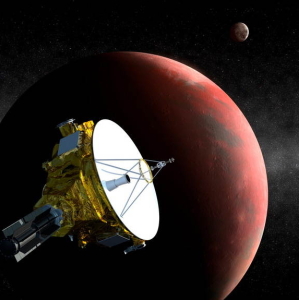
What is considered a planet in our solar system? According to a new public poll, Pluto should regain its status as a planet.
The online vote, organized through the Harvard-Smithsonian Center for Astrophysics, asked the question of what defines a planet. After a debate among three experts, the audience favored restoring Pluto's planetary status.
The International Astronomical Union (IAU), the organization tasked with deciding what can be a planet, originally stripped Pluto of its planetary status back in 2006 and reclassified it as a "dwarf planet." Gareth Williams, associate director of IAU, argued that Pluto fails to meet some of the criteria even now, which include orbiting around the sun, being round or nearly round, and showing that it has "cleared the neighborhood" around its orbit (in other words, be gravitationally dominant in its area).
"Jupiter has cleared its neighborhood. Earth has cleared its neighborhood. Ceres, which is in the main asteroid belt, hasn't. Pluto hasn't," Williams said. "In my world, Pluto is not a planet."
On the opposite end of the debate, Harvard astronomer and historian Owen Gingerich, who chaired the IAU planet definition committee back in 2006, argued that the definition of a planet is semantic, saying that "a planet is a culturally defined word that changes over time" and that Pluto should be classified as one.
"My feeling is that in retrospect, the IAU should not have attempted to define the word 'planet'," Gingerich said. "I thought it was really dumb that the IAU took as a category 'dwarf planet' and then said, 'But they're not planets, I was disappointed that it happened that way."
Gingerich then revealed that most of the IAU attendees wanted to rush the vote on Pluto's sub-planet status in 2006. While the IAU has nearly 10,000 members according to a Sydney Morning Herald article, the decision came from 424 of its members.
"They voted not to vote again because they wanted to go to lunch, so that was the end of it," Gingerich said.
Dimitar Sasselov, director of the Harvard Origins of Life Initiative, supported Gingerich's claim of Pluto as a planet. He came up with a wider definition for a planet, which he defines as "the smallest spherical lump of matter that formed around stars or stellar remnants."
The audience ended up agreeing with Sasselov's arguments and voted overwhelmingly to reinstate Pluto. Although the vote results are nonbinding, some astronomers said that the debate illustrated how much the IAU was out of touch with the public.







